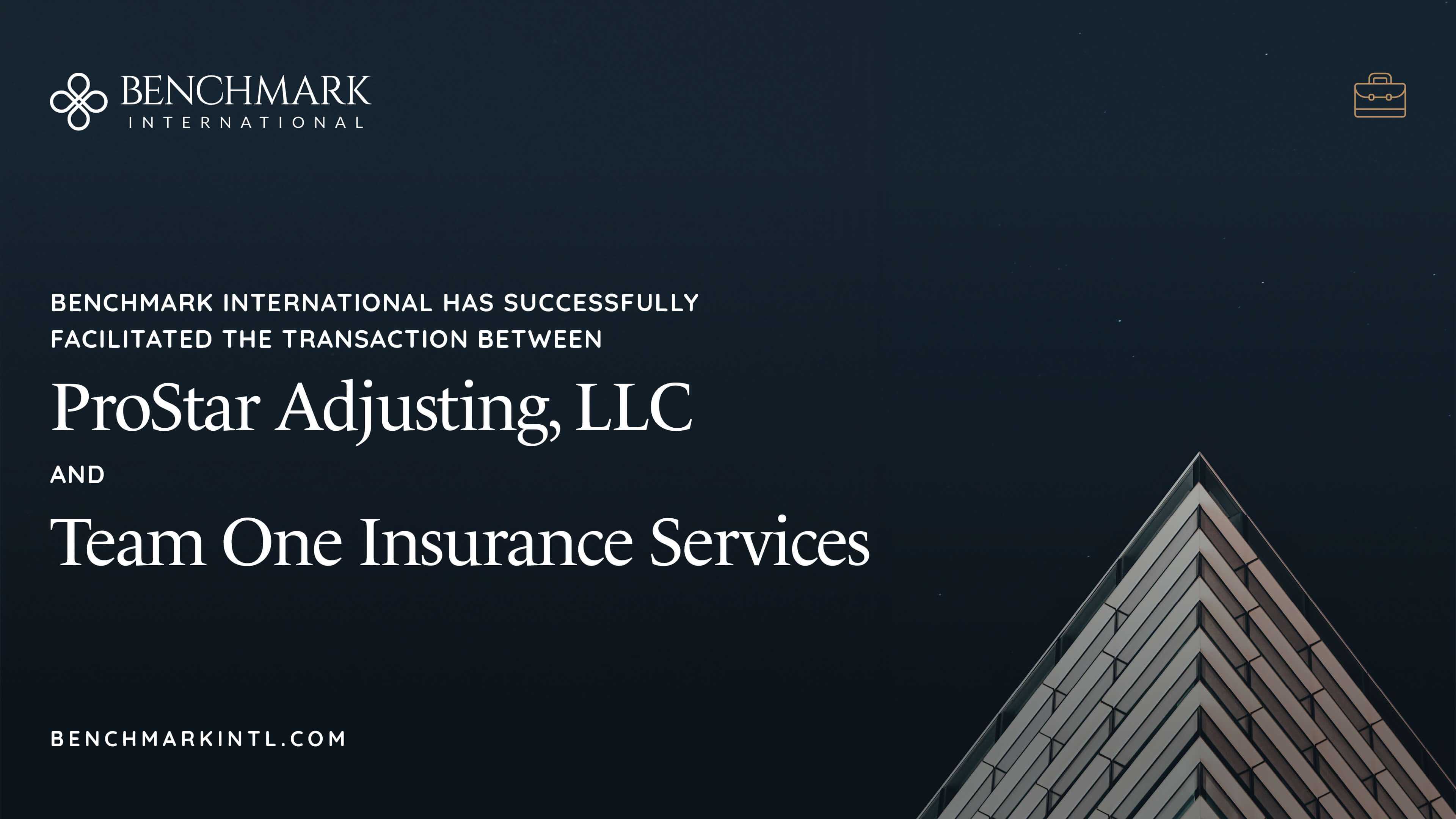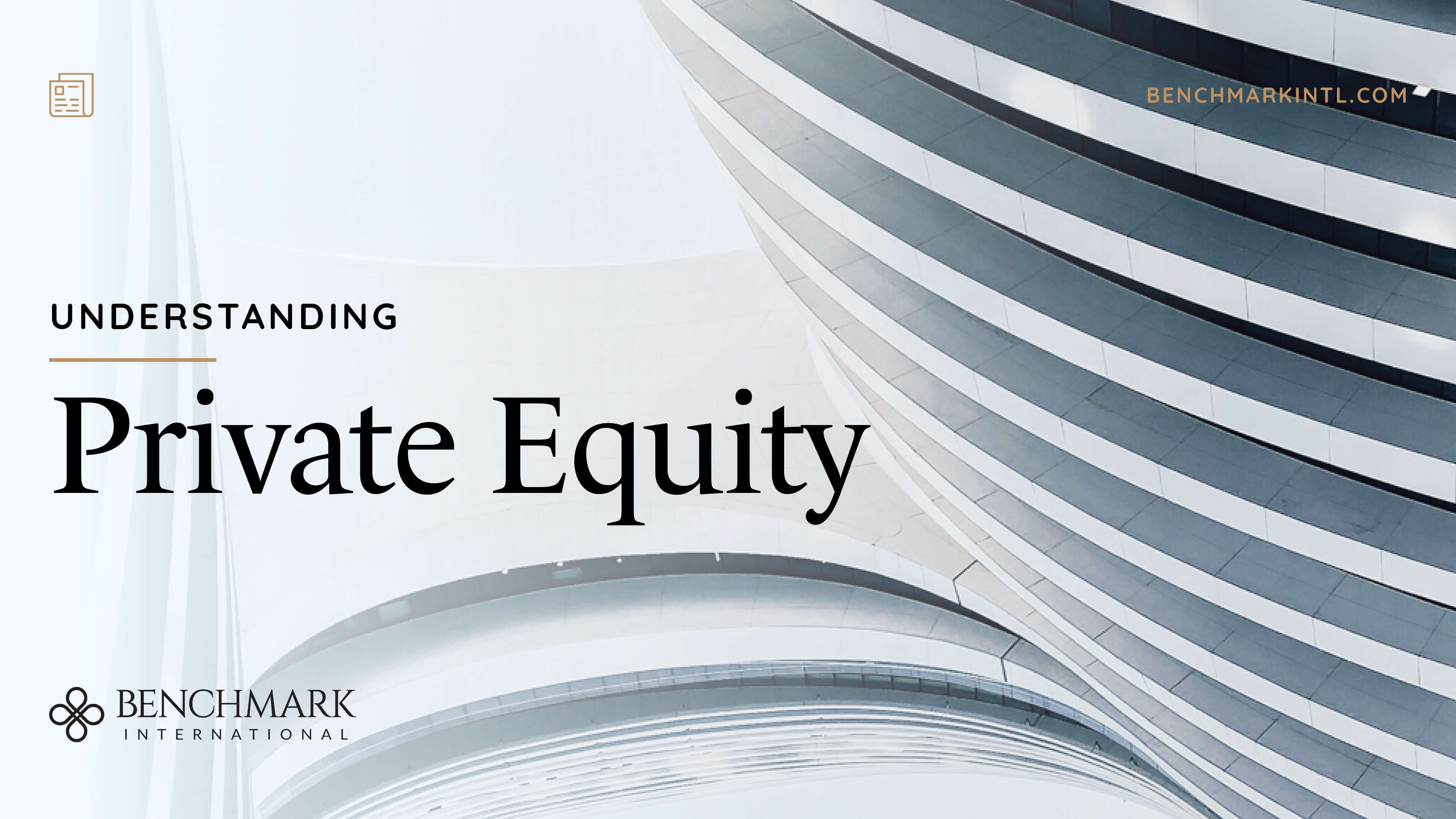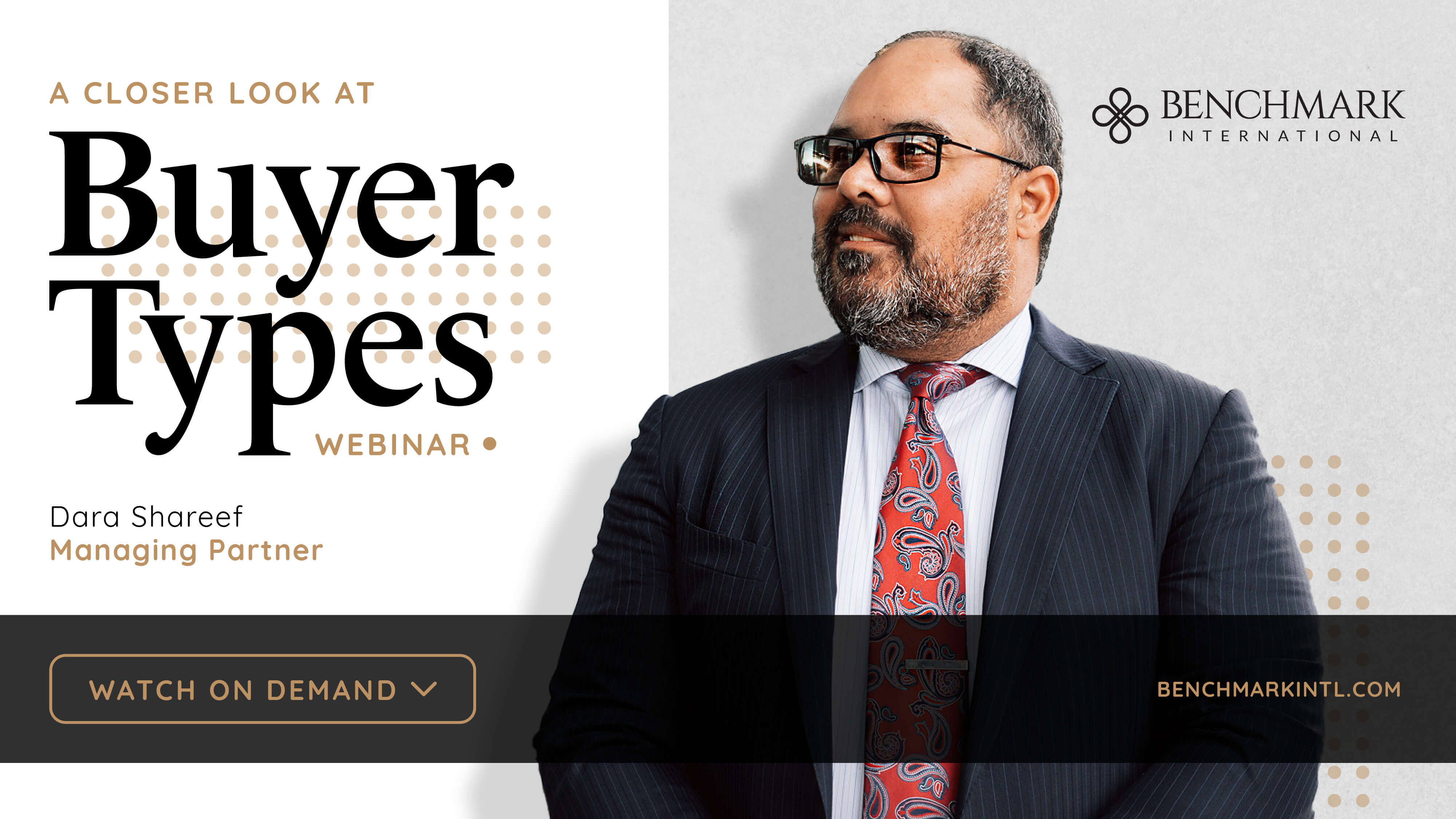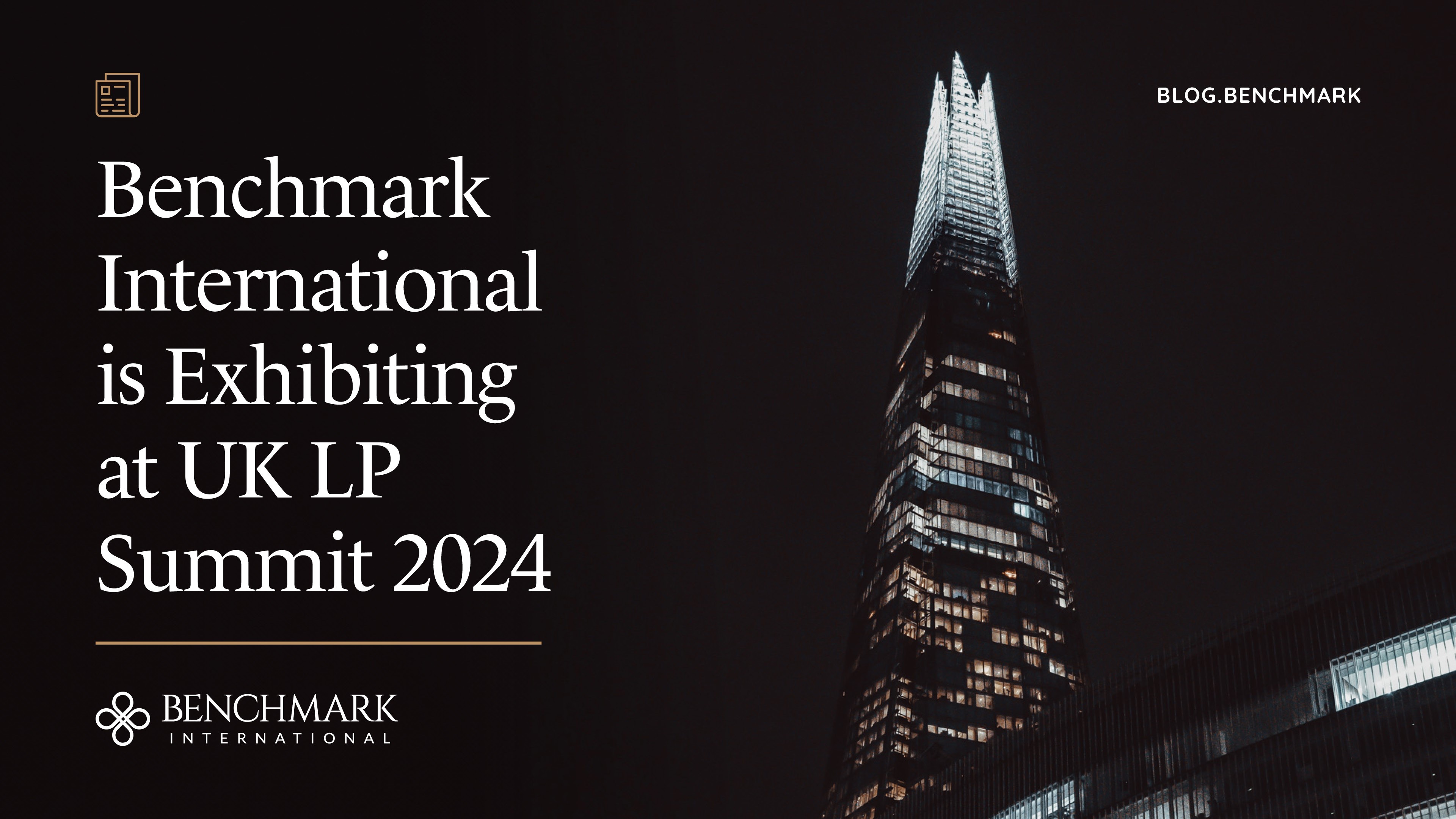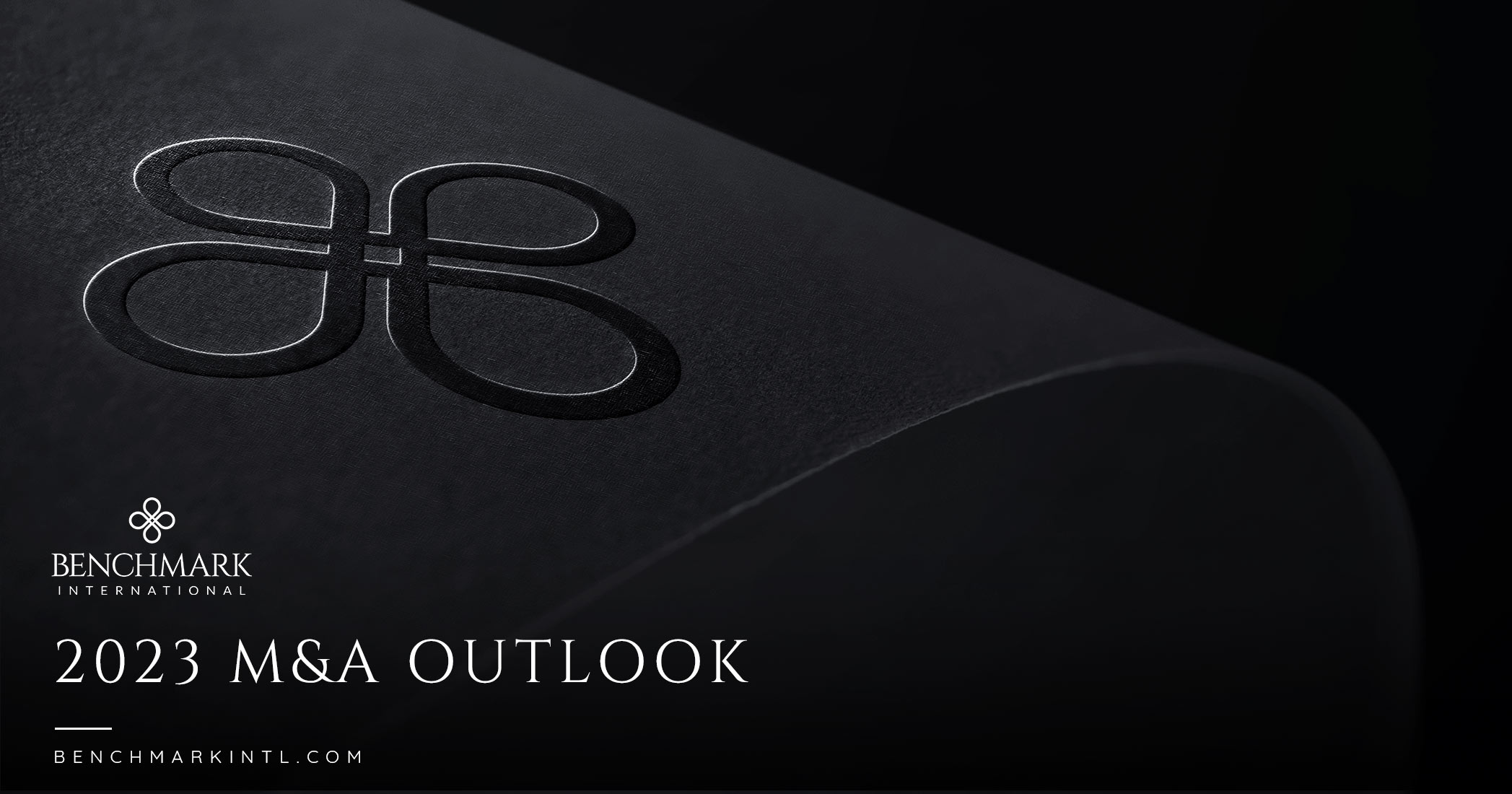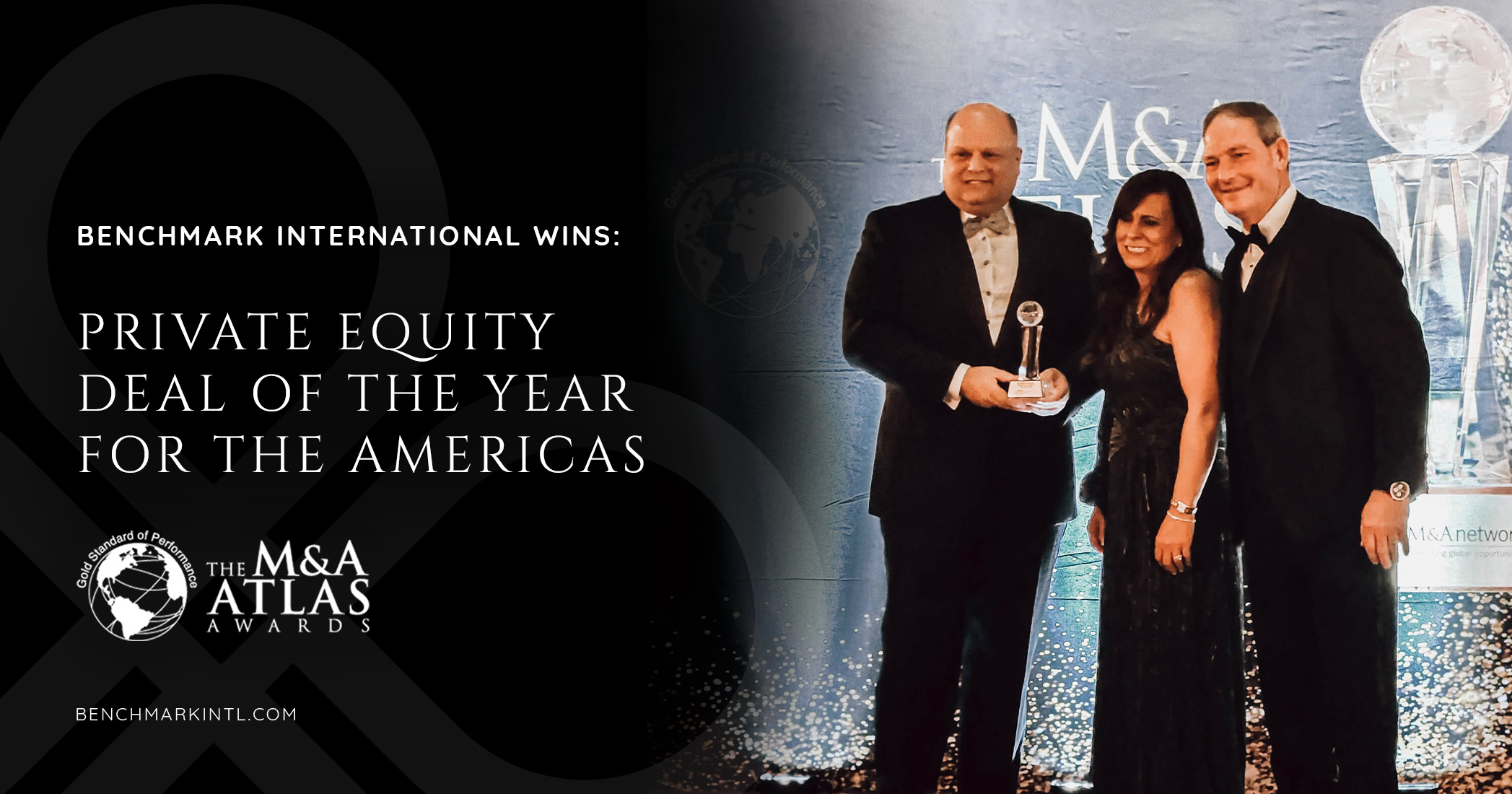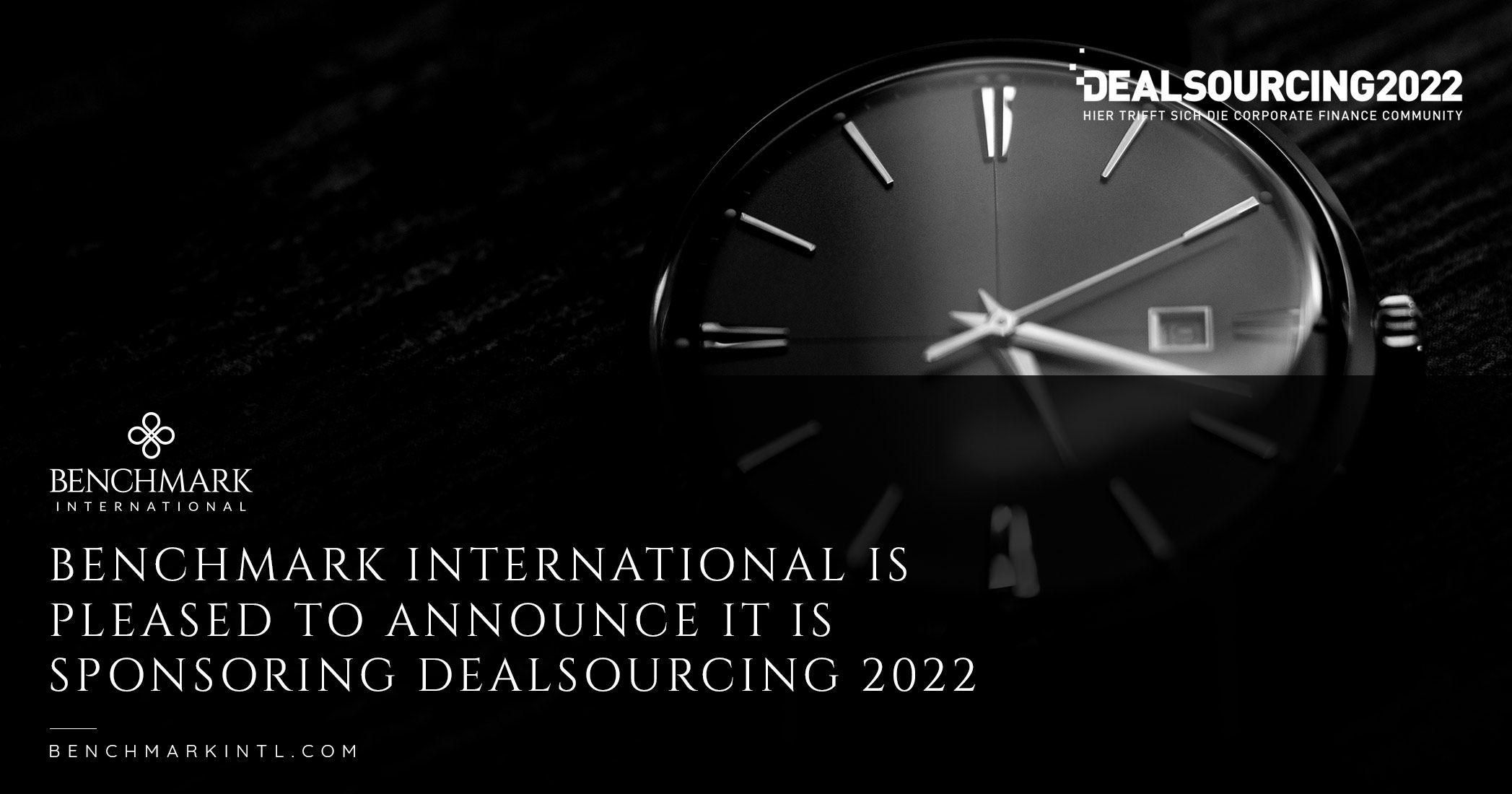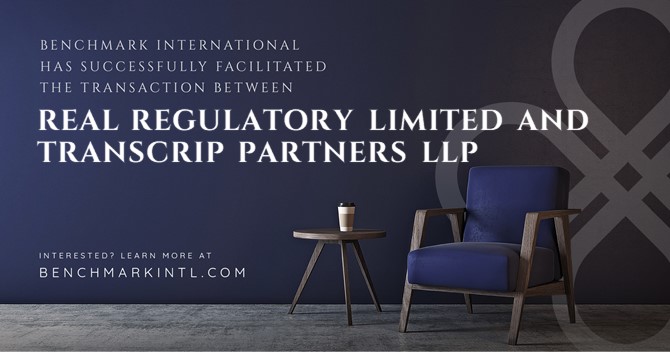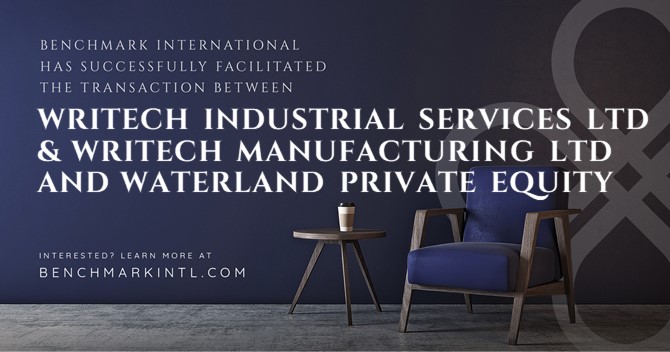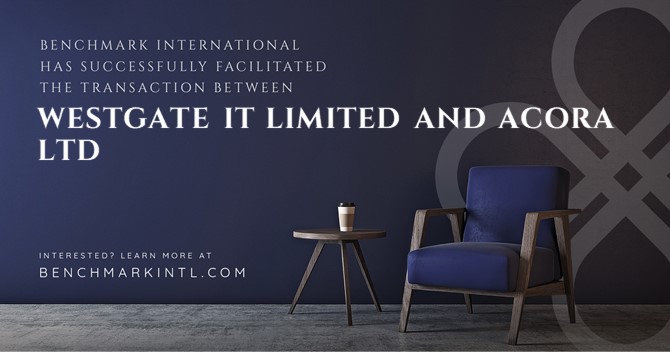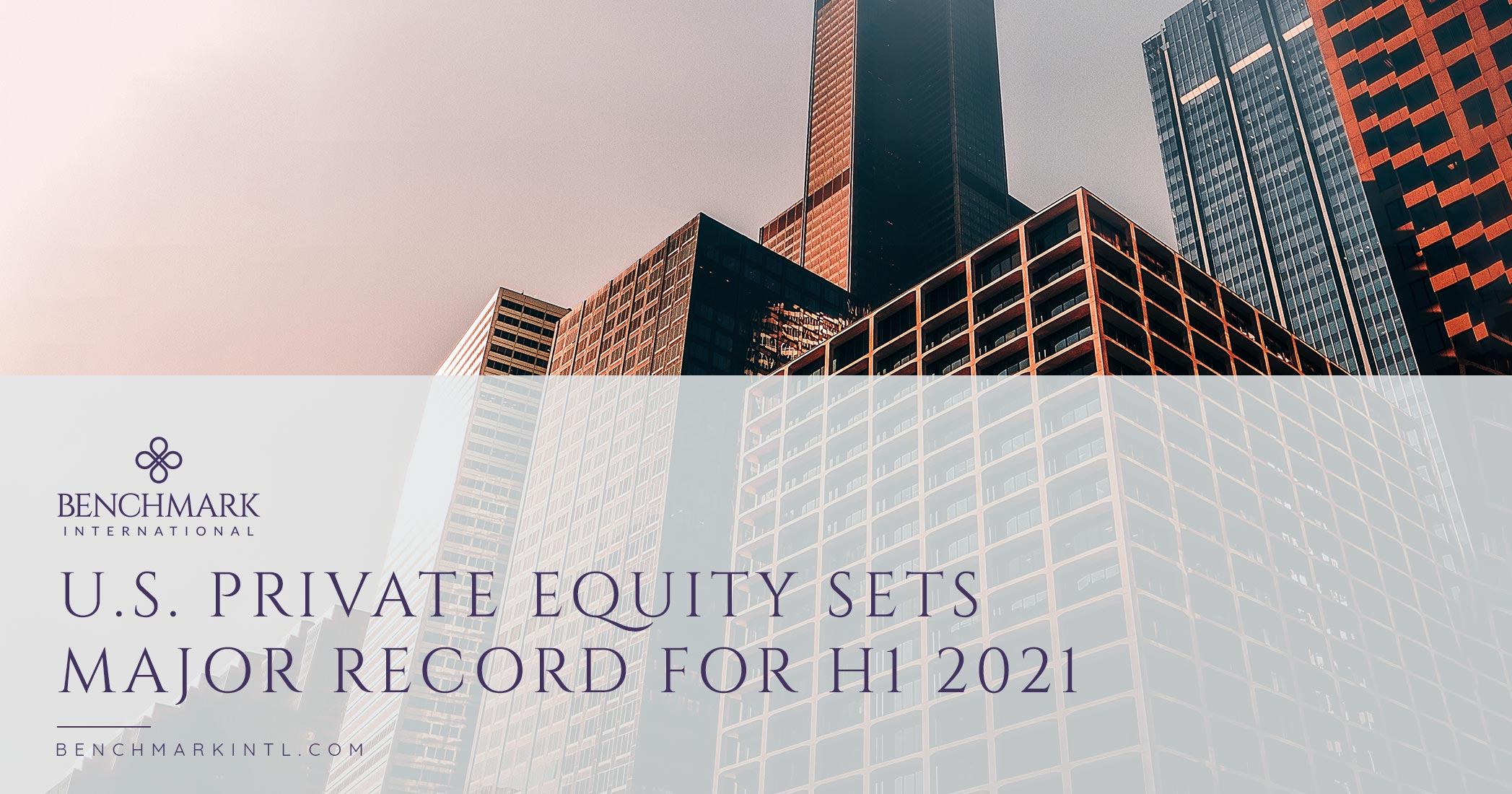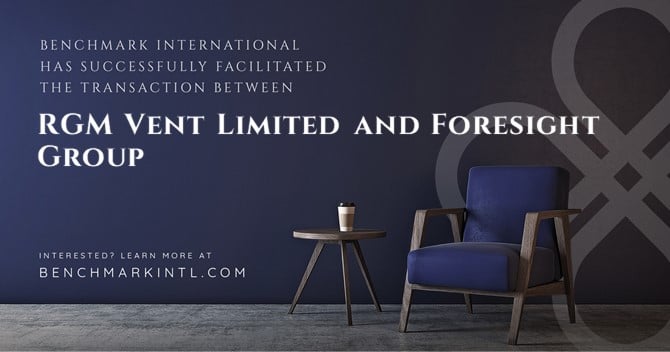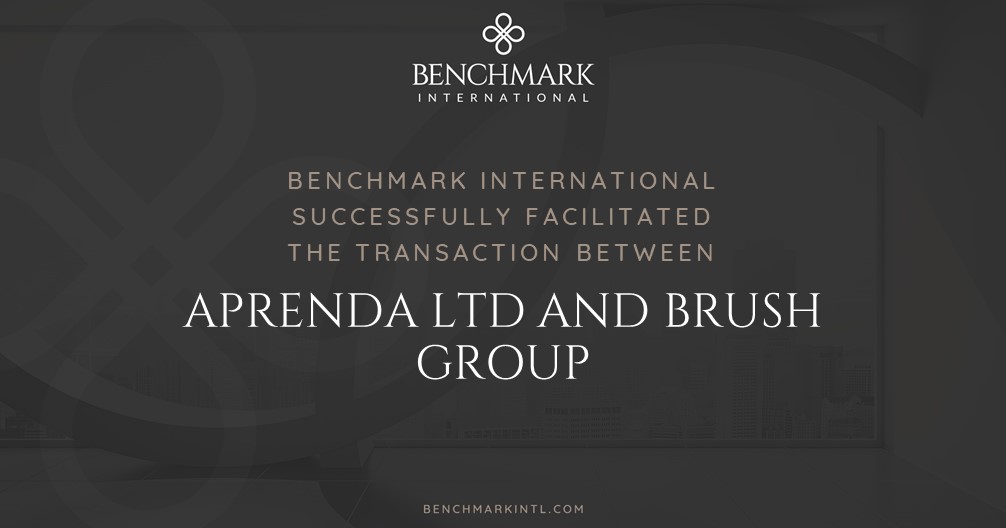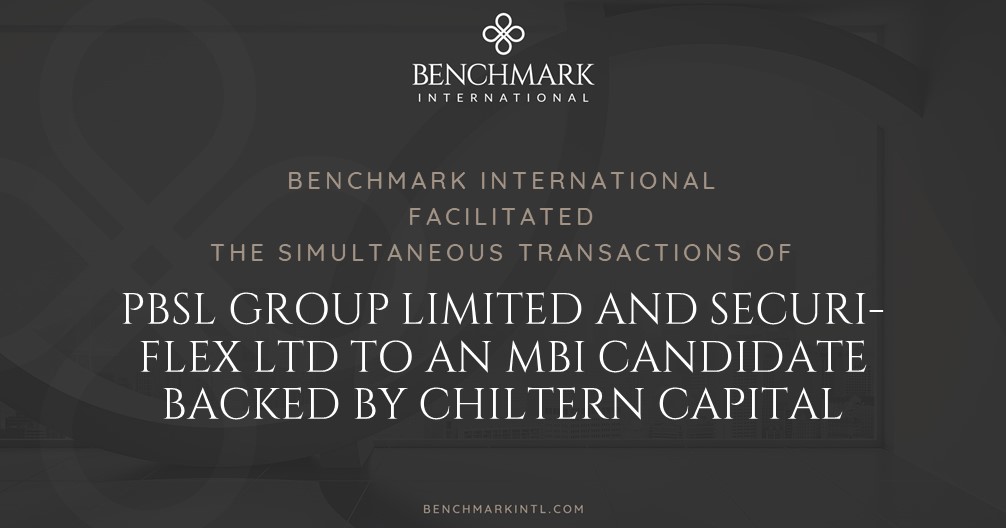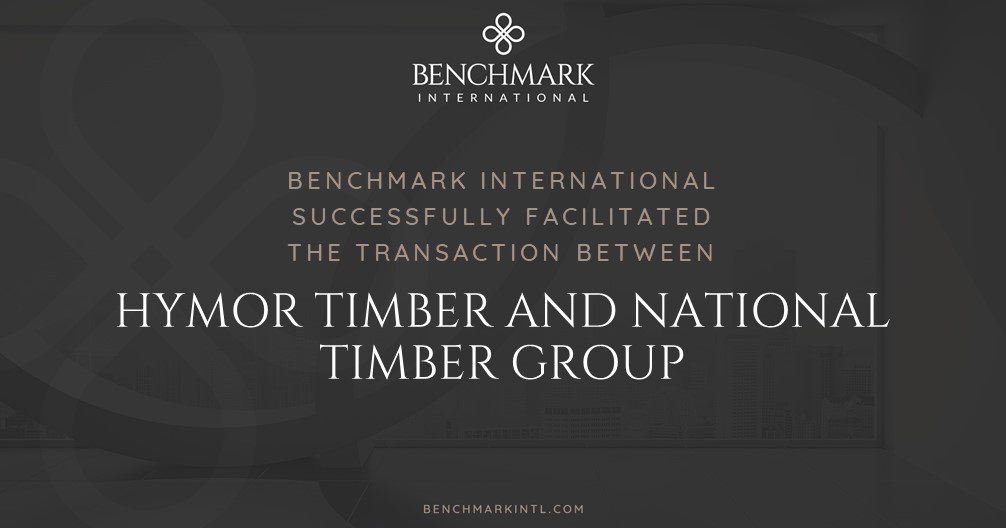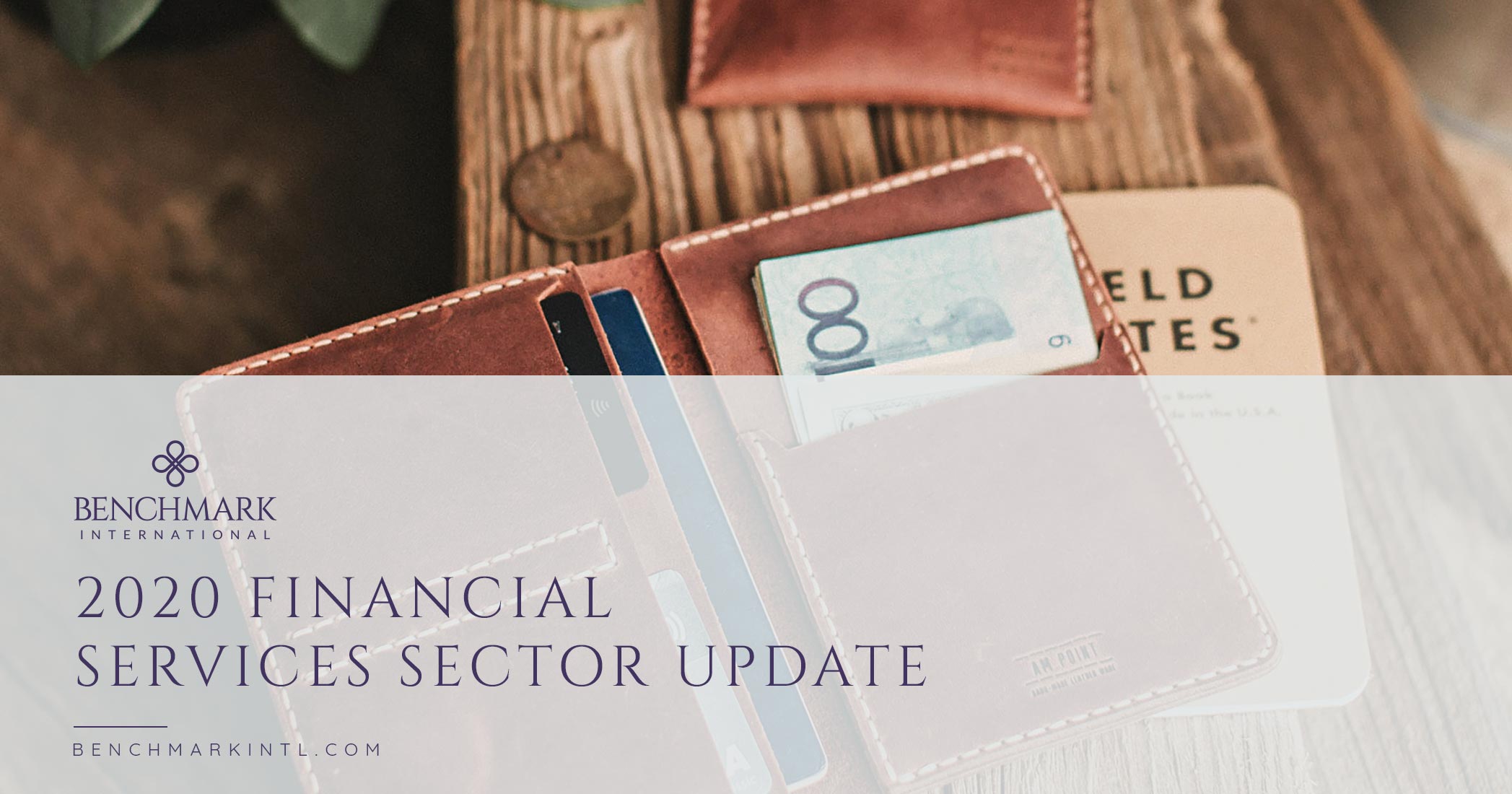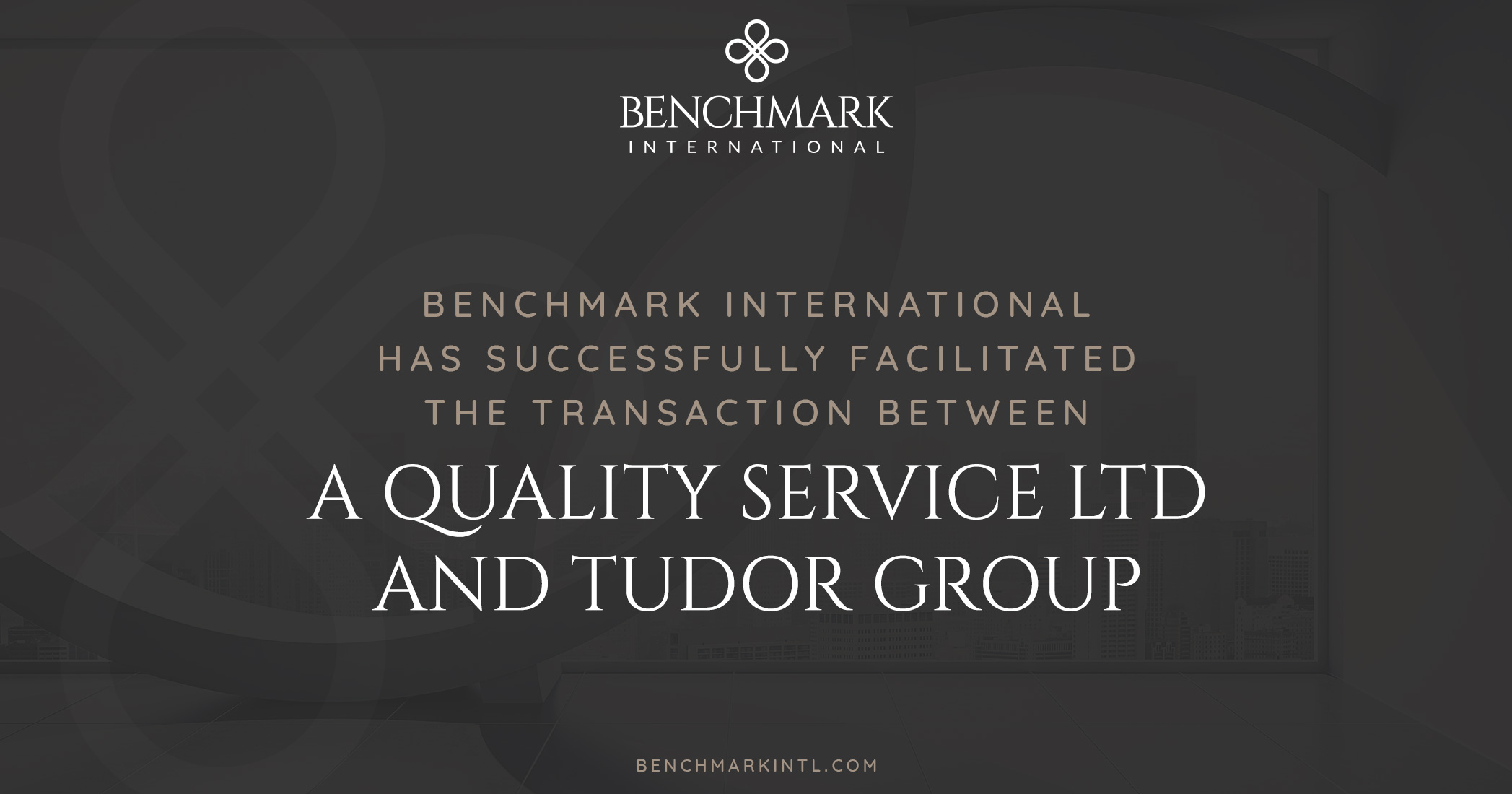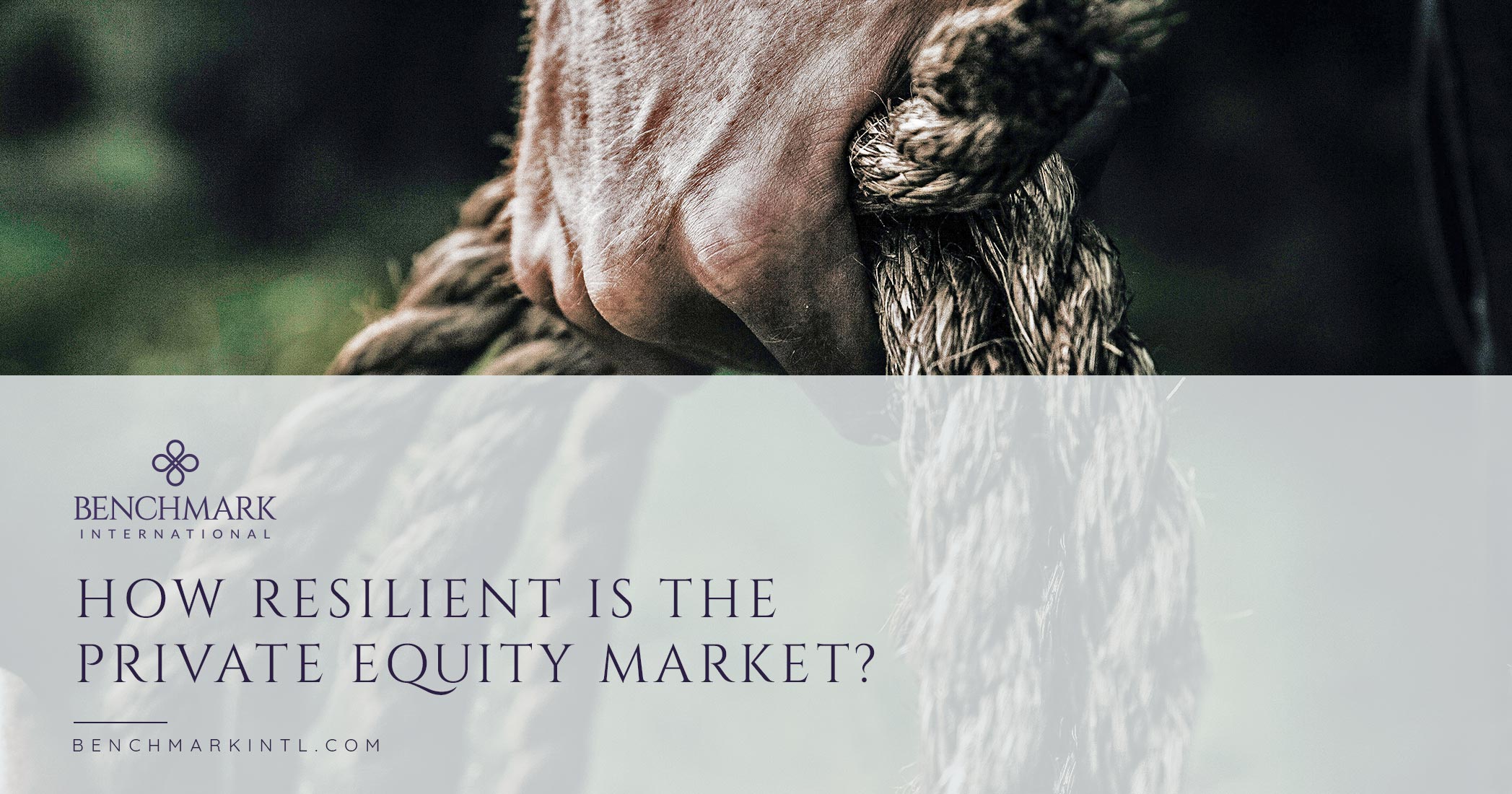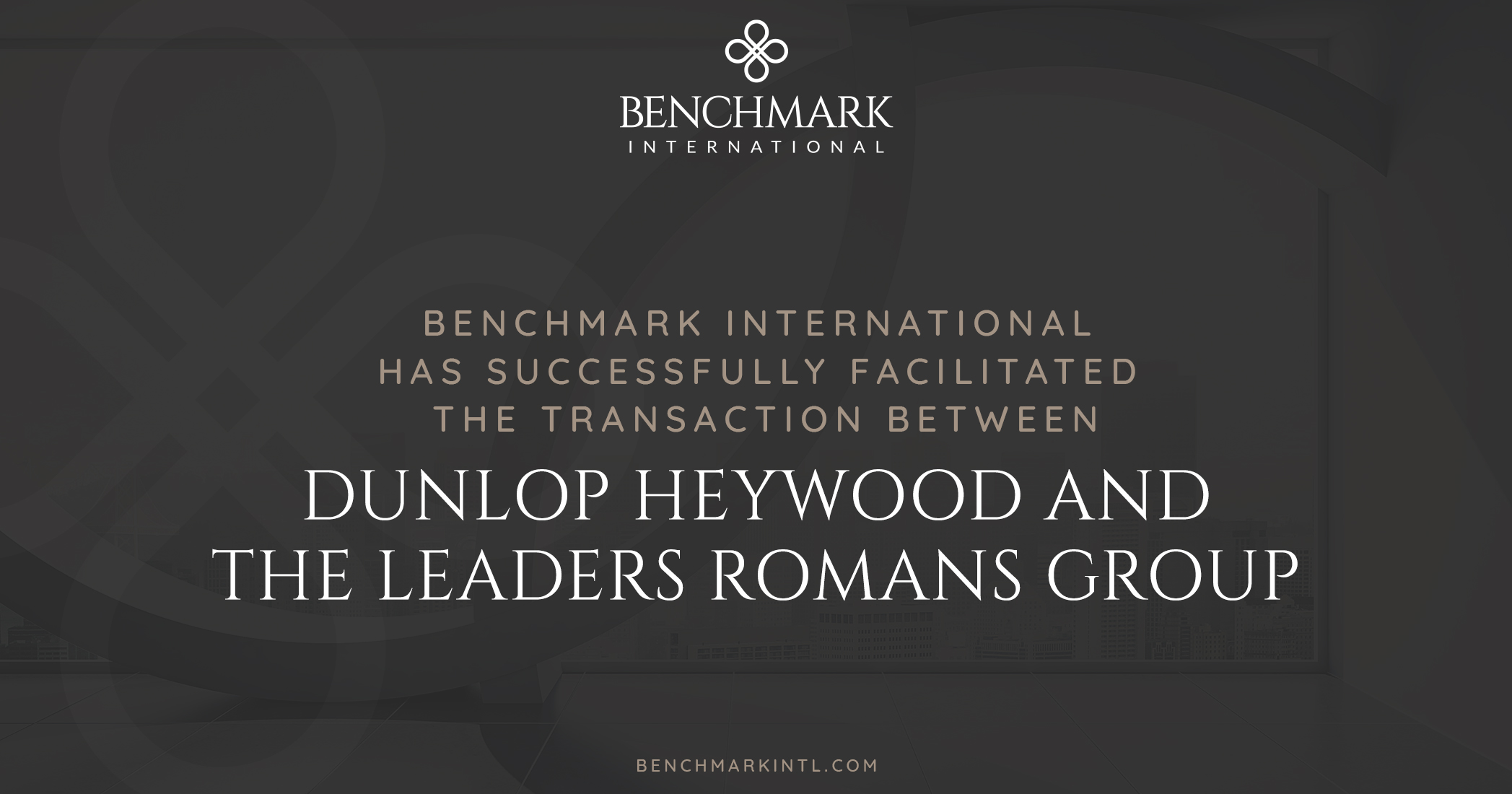Benchmark International is pleased to announce the transaction between ProStar Adjusting, LLC, and Team One Insurance Services, a portfolio company of Longshore Capital Partners. The transaction creates a strategic expansion for ProStar Adjusting's existing claims-adjusting services and offers a deeper geographic reach.
READ MORE >>Archives
Benchmark International Has Successfully Facilitated The Transaction Between ProStar Adjusting, LlC And Team One Insurance Services
UK Dealmaking Trends 2024 – The Return of Deals
In the wake of persistently low deal activity over the past two years, the dealmaking landscape is showing signs of change. As interest rates stabilise, inflation falls, and markets become less volatile, dealmakers are presented with new opportunities and challenges.
And it looks like change is inevitable. According to PwC’s 27th UK CEO Survey, one in five CEOs believe their companies will not be viable in the next 10 years if they stay on current paths, with organic change not sufficing. Acquisitions are increasingly viewed as the way forward, particularly when it comes to adapting technology and accelerating decarbonisation.
Here's a closer look at the trends expected for 2024:
READ MORE >>Share this:
Understanding Private Equity
Private Equity (PE) or Private Equity Groups (PEGs) combine large amounts of capital from various sources and directly invest it in private companies or the buyout of public companies (resulting in the delisting of public equity from the stock exchange).
READ MORE >>Share this:
Navigating The Unpredictable: A Recap Of M&A In 2023
Midway through the year, I published an article titled "Don't Panic – The M&A Outlook in 2023," which aimed to calm nerves amid the prevailing uncertainty in the market. As we approach the close of the year, it is evident that the US economy has defied the gloomy predictions that loomed at the beginning of 2023, steering clear of a recession. The resilience is remarkable, and a deeper dive into the dynamics reveals some interesting trends.
READ MORE >>Share this:
Unlocking Buyer Types: On-Demand Webinar Now Available
Missed the live event or eager to dive back into the insights shared by industry expert Dara Shareef? We are thrilled to announce that our webinar, "Casting a Wide Net When Pursuing an Exit - An Examination of Other Buyer Types," is now available on demand!
READ MORE >>Share this:
Benchmark International is Exhibiting at UK LP Summit 2024
Benchmark International is delighted to announce it will be exhibiting at UK LP Summit on 8th February 2024 at the Hilton London Canary Wharf.
READ MORE >>Share this:
Benchmark International Successfully Facilitated the Transaction Between LEVL Telematic Limited and Banyan Software, Inc.
Benchmark International is pleased to announce the acquisition of Coventry-based LEVL by Canadian-based Banyan.
LEVL, established in 2016 by Jan O’Hara and Andrew Pearce, is a key Geotab reseller in the UK and for electric vehicles (EVs) across Europe. The company provides hardware and software to allow customers to manage fleet, also delivering consultancy on transitioning fleet to sustainable alternative vehicles and alternative fuels.
Banyan is a private equity company that focuses on niche software with high levels of annual recurring revenue. With a permanent capital base set up to preserve the legacy of founders, Banyan has a buy and hold for life strategy for growing software companies.
READ MORE >>Share this:
Five Lower Middle Market M&A Trends In 2023
The lower middle market is a highly dynamic and active segment of the M&A landscape, characterized by companies with enterprise values up to $100 million. In early 2023, several key trends appear to shape the lower middle market M & A landscape.
READ MORE >>Share this:
Healthcare Is A Hot Industry For M&A In 2023
After a very active year in 2021 and a reasonably robust market in 2022, M&A deal-making in the healthcare sector will soar in 2023 thanks to much corporate cash and private equity sitting on plenty of dry powder. Healthcare and health services companies are expected to actively explore M&A, divestitures, and other types of transactions, making it an attractive marketplace for parties.
READ MORE >>Share this:
Benchmark International Facilitated The Transaction Between Integrity 1st, Inc And Onedigital
Benchmark International is pleased to announce the transaction between Integrity 1st, Inc and OneDigital, a portfolio company of Onex. This transaction creates a strategic expansion into the Colorado insurance market.
READ MORE >>Share this:
Cash Vs. Accrual & What You Need To Know
In most businesses, books are kept on one of two typical bases: cash or accrual. Some business owners choose one or the other for a specific reason. Others work under the guidance of their CFO, bookkeeper, controller, tax advisor, accountant, or other financial specialists of choice and review the resulting reports to measure operations. However, the two bases of accounting have major differences and can significantly impact the perceived performance of a business. For example, if you've been grappling with the potential sale of a business, most acquirers prefer books on an accrual basis. There are many reasons for this, but the primary reasoning is that accrual basis financial statements follow Generally Accepted Accounting Principles (GAAP), whereas the cash basis financial statements do not. However, both bases have their merits depending on the type and function of the business.
READ MORE >>Share this:
What To Expect For Middle-market Company Valuations In 2023
2023 holds a positive outlook for middle-market business valuations. Results of the survey, 2023 M&A Outlook from Citizens M&A Advisory show good signs for company performance and high motivation for growth this year. The annual survey polls 400 leaders of US middle-market companies with $50 million to $1 billion in revenue and private equity firms actively buying and selling companies in the same revenue range.
READ MORE >>Share this:
M&A Activity During A Recession
With discussions of a recession looming, business owners may display concerns about the timing of going to market to sell, asserting that the economic downturn will not be beneficial if they were to go to market. In fact, acquisition opportunities present a significant value creation prospect for private equity groups, which tend to increase mergers and acquisitions during a recession for various reasons.
READ MORE >>Share this:
2023 M&A Outlook
Back in 2021, the M&A market enjoyed record-level activity. But 2021 was an anomaly because it followed 2020 when so many deals were put on hold due to the COVID-19 pandemic. 2022 seemed like a slower year, but it was actually a return to normalcy. 2023 is expected to be strong for the middle market, as buyer focus shifts from public markets to private markets. While interest rates have been going up, both strategic and financial buyers are still sitting on record levels of cash. 2023 could actually signify a return to normal for the market and be a great year for business owners looking to sell their companies.
READ MORE >>Share this:
Benchmark International Wins Private Equity Deal Of The Year For The Americas For Sale Of KGM To Compass Group Equity Partners
Benchmark International was recognized by the Global M&A Network for its role in arranging and brokering the sale of KGM, an Oklahoma-based natural gas infrastructure distributor, to St. Louis-based private equity firm Compass Group Equity Partners. The coveted "Private Equity Deal of the Year for the Americas" was awarded at this month's 14th Annual M&A Americas Atlas Awards at Manhattan's Metropolitan Club.
READ MORE >>Share this:
Current M&A Outlook Into 2023
In 2021 and early 2022, we saw record-breaking levels of M&A activity in the United States and around the world, and many business owners are wondering how long this cycle
will last.
Share this:
The Public-To-Private Trend For New Paths To Growth
Many individuals at large institutions that trade in the public markets are turning to private ownership and pursuing majority equity positions in lower middle-market companies and even creating their own funds. This public-to-private trend is partially being driven by current and expected public market volatility over the next few years, combined with individual business circumstances, all with the expectation for a brighter future. The recent stock market instability is presenting attractive opportunities for companies that may perform better in the private market. Private equity and private investors have ample capital available to them at a time when public market valuations are sinking. The interest is coming from both private equity funds and strategies, as private markets are gaining ground on public markets. Take-privates are on pace for the second year in a row at $100 billion or more in deal value. That is a first for the industry in more than a decade.
READ MORE >>Share this:
Benchmark International Successfully Facilitated the Transaction Between Edge Electric and Sundog Capital
Benchmark International’s client Edge Electric, one of Austin, Texas’ largest and premier commercial and residential electrical services provider, has successfully sold to Sundog Capital of Atlanta, Georgia.
Edge Electric, founded in 2009, is a full-service licensed electrical subcontractor serving both the residential and commercial markets with an emphasis in the commercial market. The company has been successful at providing electrical services on a diverse group of projects, including new construction, remodel, tenant improvement, and service.
Sundog Capital is a private equity firm founded in 2021 with a team of investors and operators focused on acquiring and growing businesses in the lower middle market. Sundog take a generalist investing approach, with a particular interest in specialty contracting services, manufacturing, distribution and consumer products. Sundog has completed its first investment in a combined platform that creates a business of considerable scale, spanning multiple high-growth geographies with excellent diversification across end markets.
Benchmark International proved value in finding a buyer with experience in the industry through its proprietary multi-medium marketing strategies. In addition, Benchmark International incorporated several campaigns with local, regional, and national associations. Benchmark International understood that our client wanted a partner to help them grow their business to its full potential and found a buyer that was excited to partner with the business and build on their impressive history and legacy.
Sandra Johnson, President of Edge Electric, commented, “I have been very satisfied with Benchmark’s excellent service throughout this sales process, and I appreciate the hard work and professionalism offered by the Benchmark team.”
Transaction Director, Amy Alonso, commented, “We are thrilled that our client has found the perfect partner in Sundog to support them with additional resources to move ahead with an ambitious growth strategy. It was a pleasure working with both parties and we are excited to watch the future success of the business as it continues to expand in the Texas market.”
Americas: Sam Smoot at +1 (813) 898 2350 / Smoot@BenchmarkIntl.com
Europe: Michael Lawrie at +44 (0) 161 359 4400 / Enquiries@BenchmarkIntl.com
Africa: Anthony McCardle at +27 21 300 2055 / McCardle@BenchmarkIntl.com
ABOUT BENCHMARK INTERNATIONAL
Benchmark International’s global offices provide business owners in the middle market and lower middle market with creative, value-maximizing solutions for growing and exiting their businesses. To date, Benchmark International has handled engagements in excess of $8.25B across various industries worldwide. With decades of global M&A experience, Benchmark International’s deal teams, working from 14 offices across the world, have assisted thousands of owners with achieving their personal objectives and ensuring the continued growth of their businesses.
Website: http://www.benchmarkintl.com
Blog: http://blog.benchmarkcorporate.com
Share this:
Benchmark International is Pleased to Announce it is Sponsoring DEALSOURCING 2022
Benchmark International is pleased to announce that it will be sponsoring DEALSOURCING 2022 on 13th September at the Dorint Hotel Frankfurt/Oberursel.
Dealsourcing is a key event in Germany for M&A professionals, hosting hundreds of participants including private equity firms, funding platforms, restructuring advisors, M&A advisors, and due diligence professionals, to name a few.
As the most efficient networking event of the German corporate banking and finance community, DEALSOURCING provides Benchmark International with the prime opportunity to meet the right contacts for its sell-side mandates, providing us with a unique opportunity to showcase the opportunities we represent.
As well as networking opportunities, the event also include 30 innovative workshops to enhance our opportunities to connect with the best buyers for our clients.
Do you want to be featured and showcased in front of leading dealmakers? Naturally, we present only a select number of companies for each event, so we would encourage you to contact us now to ensure your business is included.
READ MORE >>
Share this:
Benchmark International Successfully Facilitated the Transaction Between Real Regulatory Limited and Transcrip Partners LLP
Benchmark International is pleased to announce the acquisition of Dublin-based Real Regulatory by private equity-backed tranScrip.
Real Regulatory is a consultancy firm specialising in European regulatory affairs, quality systems and compliance for products including medicines, medical devices, and drug device combinations. Headquartered in Dublin, the company also has offices in Cambridgeshire and Malta.
Founder and managing director, Karen Real, who has more than 35 years’ experience in the pharmaceutical industry, will remain with the business moving forward.
tranScrip is a fast-growing contract drug development organisation which supports the development and lifecycle of medicines. It is backed by private equity firm, Palatine, and the deal is the first acquisition made by the company since securing Palatine’s investment in 2021 via its dedicated Impact Fund.
The strategic acquisition significantly expands tranScrip’s regulatory affairs capabilities, strengthening its ability to provide comprehensive support to its customers.
READ MORE >>Share this:
Surge in Private Equity Deal Activity 2021
Private equity transactions on a global scale returned to form in 2021 following the challenges posed by the pandemic, with private equity firms deploying record amounts of dry powder held as they looked to invest cash accumulated during the pandemic.
According to Mergermarket, a record was set for the percentage of M&A deals that involved private equity, with buyouts comprising 27% of global activity in 2021. This totalled 8,548 deals worth $2.1tn, nearly doubling the previous record set in 2007. Deal volume was also staggering, showing a 60% increase year-on-year.
Looking to 2022, it appears that global private equity deals might continue in the same vein, as private equity houses still have approximately $2.3tn of cash reserves. This, coupled with increasingly positive economic conditions such as a brightening global economic outlook, seller-favourable valuations, and low interest rates, are instilling confidence in the market.
At Benchmark International, the Transactions Teams stay abreast of industry trends to ensure the best and most suitable deals are completed for clients. As a result, throughout 2021, Benchmark International in the UK and Ireland has completed 18 transactions involving a private equity buyer. These include:
READ MORE >>Share this:
U.S. Private Equity in Middle Market Continues at Record Levels
Middle-market private equity (PE) dealmaking in the United States didn’t lose its record momentum in the second quarter of 2021, some of which carried over into Q3, thanks to sustained economic recovery, ample debt, and plenty of available capital, according to data from Pitchbook. U.S. GDP grew at an annualized 6.5% in Q2 but slowed to 2% in Q3, mainly due to global supply chain issues.
PE fundraising is also holding strong, with the 87 U.S. middle-market funds raised so far this year on course to set a new record. Additionally, the $68.4 billion in capital raised in 2021 is on track to be the second-highest annual total since 2010.
Most deal activities were put on hold for several months after March of 2020 and the onset of the COVID-19 pandemic, but 2021 and early 2022 may be the right time to sell. The following factors are affecting the viewpoint of sellers of privately-owned companies:
- Some owners are now more heedful of another crisis and how it could affect their businesses.
- Many owners no longer wish to sustain efforts and risks that come with their businesses.
- Owners who worked remotely during the pandemic got accustomed to more flexible schedules and free time.
- Numerous owners nearing retirement are worried about the possibility of higher corporate, personal income, capital gains, and dividend taxes.
- Because wealth built up in private companies is not easily converted to cash, some owners have focused on the fact that after-tax proceeds from a sale will last for a long period of time.
So far this year, the largest share of PE deals has taken place in the lower to middle markets, with deals of less than $1 billion making up nearly 70% of all deals. 2021 remains on pace to easily surpass the prior annual record from 2019. At the end of the year, numbers are expected to be even more impressive as investors may hurry to close deals before the year comes to a close.
According to the Golub Middle Market Index, U.S. middle-market companies registered 21% revenue growth in the third quarter of this year. In addition, direct lending funds account for most middle-market LBO financing and reached record fundraising levels in the second quarter.
Add-ons increased as a share of PE deals. Middle-market firms looked to add mid-sized aggregators and sought out M&A deals to expand platforms, diversify the value chain, and embrace ESG principles.
There was also robust exit activity in the middle market, as valuations were desirable and investor confidence was high. So far this year, the market hosted an estimated 430 exits with a combined value of $87.3 billion. Soaring valuations mean that many GPs meet their investment goals earlier than expected, driving many to cash in on investments ahead of schedule.
Smaller, strategic exits are dwindling in the hospitality and travel sectors for expected reasons after the pandemic impacts. Middle-market sponsors are holding onto investments in these pandemic-stricken sectors. In the second quarter of 2021, there were almost zero exits of hotels, in-person dining, travel providers, or other related companies.
Secondary buyouts are also following an upward trend. So far this year, SBOs account for nearly 62% of all middle-market exits. Buyout firms are taking advantage of limited partners’ healthy appetite for private market exposure as well as the record deal activity that enabled firms to fundraise at a very fast pace. While first-time funds and emerging managers put up positive numbers in 2021, some bigger LPs put less investment into large multi-strategy firms or shifted it to new products offered by those with whom they already had a relationship.
Even amid all this positive activity, middle-market firms in the U.S. are still facing other challenges. While unemployment rates have improved from 2020, there is still a record number of unfilled jobs, causing major labor shortages in sectors such as manufacturing, healthcare, and hospitality. These circumstances are causing firms to focus more on deals that acquire key talent and automated technologies that help with employee management and retention. The sector of senior care has been hit particularly hard by labor shortages, which is likely to result in increased consolidation by home care platforms. Additionally, insurance brokerages, wealth management firms, and registered investment advisors (RIAs) all witnessed record M&A activity in the first half of this year.
PE firms are also pursuing more intricate opportunities to expand lines of business, end-market exposures, and product value chains. Such game-changing add-on acquisitions can be especially effective for vertical software deals because complementary products can be woven into multi-capability platforms to create all-in-one solutions that are good for customer retention.
Deal activity is also being driven by environmental, sustainability, and governance (ESG) initiatives. ESG has moved into the forefront for businesses this year. Transactions in the renewables market represent middle-market opportunities to grow a platform into a sector leader because of the market’s highly fragmented nature. Firms in the middle market are also pursuing add-on acquisitions to better align their portfolio companies with sustainability initiatives, whether to meet changing consumer sentiment or lower capital costs by lowering carbon emissions.
READ MORE >>Share this:
Benchmark International successfully facilitated the transaction of Writech Industrial Services Ltd & Writech Manufacturing Ltd to Waterland Private Equity
Benchmark International is delighted to announce the majority sale of Irish fire-protection systems company, Writech, to Waterland.
Established in 1981 by Thomas and Mary Wright, Writech provides fire protection system design, installation, manufacture, commissioning, and services across a range of sectors including logistics, data centres, life sciences, office, retail, and food & beverage.
Sons Ted and Alan Wright took over the business in 2008, now generating more than €20m in revenue. Writech will use Waterland’s investment to expedite expansion plans in Europe and the UK, as well as increase output at its Mullingar centre, creating over 30 jobs.
Waterland is a Dutch-based private equity house, headed by Laura Dillon in Ireland. The investment group has €8bn in assets under management across Belgium, the Netherlands, the UK, Germany, France, Denmark, Poland, and Switzerland.
Share this:
What is Private Equity and How Active is it in the Current Market?
While you may be hearing that the M&A market is currently active, numbers speak volumes. A recent article from U.S. News cited that private equity (PE) has inked more than 2,300 deals for the first five months of 2021. Year-over-year, this is just over a 21% increase in deal volume. In fact, according to Pitchbook data, in the first half of 2021, PE firms closed on 3,708 deals worth a combined $456.6 billion. That’s almost two-thirds of the $711.6 billion deal value recorded in the entire year of 2020, and the two years prior. It is estimated that there is roughly $3 trillion of dry powder—also known as available funds—on hand for investment, with even a large amount of assets under management.
Historically low-interest rates and record levels of fundraising have left private equity with dry power that they must put to use. The combination of these factors has created competitive bid scenarios for many sellers. It appears that many private equity firms believe that this trend will continue for the coming months. According to S&P Global Market Intelligence, roughly 7% of private equity firms believe that the investment landscape will deteriorate in the coming months.
You may be asking yourself, “What is private equity?” Private equity firms obtain capital to invest in private companies. They have a set period of time to make the investments with the goal of optimizing return for their investors. Their investors tend to be institutional investors such as insurance companies, pension funds, endowments, etc.
The firms typically invest in mature companies with predictable, steady cash flow and a need for operational changes or growth capital. Private equity firms will utilize their capital, connections, and expertise to help improve the managerial, financial, and operational aspects of the business. Their goal is to increase the profitability of the company as this will help drive the value of the company upon exit. The firms make investments with a ‘buy and build’ mentality.
Private equity firms realize their returns when they sell the investment. The firms tend to have a goal of roughly 20-30% return on their equity. Private equity firms will use leverage to help maximize their return. They also charge a management fee, typically a percentage of total assets under management, also known as AUM.
READ MORE >>Share this:
Who Are Financial Buyers and What Opportunities Do They Present?
Financial buyers are the companies we work with that are typically labeled as private equity (PE), a family office, a hedge fund, etc. In the traditional sense, a financial buyer is primarily concerned with the cash flow generated by a company or asset that they acquire. They think about investment opportunities (clients to us) through the rate of return they can obtain from years of bottom-line enhancement and an eventual resale of the asset at a premium, or much higher valuation, than when they bought it. Like trading stocks, but with more hands-on involvement, they wish to “buy low and sell high.”
There’s a strong chance, however, that many of the buyers you’re likely to see now as a seller in the lower-middle market fit the mold of what I call the “new-look” financial buyer. Your traditional private equity funds, for example, now tout an investment strategy with no timeline for an exit on their portfolio companies. This approach emphasizes the “culture” their respective firms bring to the table for the seller, and in a highly competitive buyer market vying for deal flow, this might make all the difference.
The new-look financial buyer focuses on employee retention, low-cost growth initiatives, management equity rollover, and various other incentives to promote an environment free from the traditional return-over-everything stigma. Go to the “About” or “Approach” section of many of these firms, and I am willing to bet you’ll see words like “collaborate,” “legacy,” “partner”—perhaps even with a chart comparing their firm side-by-side with the traditional PE model to demonstrate explicitly how they’re different. This is especially prevalent in the lower-middle market where our clients are often owner-operated, founder-led businesses cultivated across generations and spanning multiple decades.
A financial buyer must now separate itself from the competition, which is good news for our clients. As mentioned above, time horizons for financial buyers have increased in length as many PE firms now reorient as long-term investors. Many will make it a point to let our clients know they don’t intend to dramatically cut costs (including through personnel changes) as this would directly conflict with the evolving model.
At the same time, financial buyers (i.e., private equity groups and other institutional investors) can be lucrative partners for our clients through a variety of value-adding benefits that they bring to the partnership. These buyers, for example, often bring economies of scale through established and profitable portfolio (“platform”) companies and are therefore able to jumpstart revenue via access to untapped markets or unrealized customers bases. Furthermore, these platforms absorb back-office duties that might have previously slowed down the productivity of key employees, and even owners. Also, while exit strategies have become more relaxed from a timing perspective, financial buyers will not hold the asset indefinitely, and for sellers who maintain equity in the merged company post-acquisition, this means the opportunity to take a “second bite of the apple” upon exit.
When dealing with a financial buyer, be sure to ask some important questions:
- Are you a committed capital fund? It’s important that they have financing available instead of “shopping” the deal after locking a client into a letter of intent.
- Have you closed a deal before? Have you closed a deal in this space before? Note: a website with no portfolio page of active or inactive past deals can be a red flag.
- What does your capital stack typically look like (i.e., how much leverage will they use or how much debt will be placed on the balance sheet on the company)?
- How long has your fund been around?
- Do you have operating partners in the space?
- Why are you interested in our client?
- How do you plan to integrate our client into your firm or existing platform company?
- Culture is important to our clients. Can you speak to culture?
- How do you typically structure your deals?
- What is your timeline for a completed transaction?
- Am I able to speak with owners of previous companies for deals you’ve completed?
- My employees mean everything to me. What do you plan to do with them?
This is by no means an exhaustive list. Seller questions to the buyer will, of course, become more specific as the deal progresses. However, the basic questions above are a good starting point and represent the beginning of a potentially meaningful and lucrative journey for sellers considering PE for the next phase of their company’s growth.
READ MORE >>Share this:
Benchmark International Successfully Facilitated the Transaction Between Westgate IT Limited and Acora Ltd
Benchmark International is pleased to announce the transaction between Bath-based managed service IT provider, Westgate IT, and Sussex-based Acora.
Established in 1997, Westgate IT is a provider of IT support, subscription and cloud-based services, and bespoke security solutions.
Acora is an award-winning managed IT services company based in London, Sussex and the Midlands. Services range from the design and build of complex solutions to the day-to-day management of services. Acora is backed by Palatine Private Equity, an independent private equity firm headquartered in Manchester.
This highly strategic acquisition is of significant importance to Acora, allowing it to further expand into the South West with greater access to local talent, an additional service centre and more than 100 clients.
READ MORE >>Share this:
Benchmark International Successfully Facilitated the Transaction Between Fisher Jones Greenwood LLP and Blixt Group
Benchmark International is pleased to announce the transaction between Essex-based law firm, Fisher Jones Greenwood (FJG), and private equity firm, Blixt Group.
FJG is a multi-award-winning firm of solicitors covering a broad spectrum of fields such as residential conveyancing, family law, probate, and immigration and asylum, as well as some niche specialisms. The company operates from four offices across Essex and one in London, employs 158 staff and has a £7.3m turnover.
Blixt is a private investment firm partnering with lower mid-market companies across Europe. Headquartered in London, the company targets businesses valued between €20m and €200m and has access to over €250m of committed institutional investor funding. Blixt is aiming to invest nationally in the legal sector with the goal of creating a national firm with a turnover of at least £100m in four to five years, and FJG is a springboard for these acquisitions.
READ MORE >>Share this:
U.S. Private Equity Sets Major Record For H1 2021
Data released in a recent report by Pitchbook shows the unprecedented performance of U.S. Private Equity (PE) during the first half of 2021, continuing its intense pace for the third quarter in a row. PE firms closed on 3,708 deals worth a combined $456.6 billion. That’s almost two-thirds of the $711.6 billion deal value recorded in the entire year of 2020, and the two years prior.
READ MORE >>Share this:
Benchmark International Successfully Facilitated the Transaction Between RGM Vent Limited and Foresight Group
Benchmark International is pleased to announce that County Antrim ventilation systems installer, RGM Vent, has secured a substantial investment from private equity firm, Foresight.
The funding is a co-investment between the Foresight Scottish Growth Fund and the Northern Ireland Opportunities Fund II, also managed by Foresight.
RGM Vent was established in 2010 and offers bespoke ductwork design and installation services to a broad customer base across the UK and Ireland, with the company completing work of prominent infrastructure developments including WuXi Pharmaceutical (Dundalk), University of Ulster (Belfast), Hampton by Hilton (Edinburgh) and Longwater Office Development (Reading). The company has experienced a significant period of growth over the last five years and now employs 75 staff.
Part of the company’s growth has seen it purchase Advanced Ventilation Systems, which focuses on the smoke, heat and exhaust ventilation market, and NSK Sheet Metal, which specialises in fabrication and manufacturing of ductwork.
Foresight is an award-winning listed infrastructure and private equity investment manager which has been managing investment funds on behalf of institutions and retail clients for more than 35 years. Foresight’s private equity team, comprising over 30 investment professionals, manages c£700 million in a portfolio of more than 100 companies.
Leveraging Foresight’s support, RGM Vent is now well primed to implement its growth strategy across the UK and Ireland.
READ MORE >>Share this:
Benchmark International Successfully Facilitated the Transaction Between Aprenda Ltd and BRUSH Group
Benchmark International is pleased to announce the transaction between Cambridgeshire-based Aprenda and Leicestershire-based BRUSH.
Aprenda is a high voltage electrical apparatus engineer, specialising in the installation and refurbishment of substations for blue-chip clients throughout the UK. Projects include turnkey design & build projects, preventative maintenance, equipment upgrades and new substation installations.
Founded in 1889, BRUSH is the leading independent provider of equipment, services and solutions for electrical power generation and distribution and is the world's largest independent manufacturer of generators above 20MVA. BRUSH's products are used across a wide range of end markets, including utilities, industrial, maritime, rail, data centres and renewable applications.
The acquisition of Aprenda will provide BRUSH with a leading design engineering platform focused on UK power distribution network projects.
READ MORE >>Share this:
Benchmark International Facilitated the Simultaneous Transactions of PBSL Group Limited and Securi-Flex Ltd to an MBI Candidate Backed by Chiltern Capital
Benchmark International is pleased to announce the simultaneous acquisitions of PBSL Group and Securi-Flex by an MBI candidate, backed by private equity firm, Chiltern Capital.
READ MORE >>Share this:
Benchmark International Successfully Facilitated the Transaction Between Vita Play Limited and Beds Construction Services Ltd
Benchmark International is pleased to announce the transaction between Winchester-based Vita Play and Bedfordshire-based Beds Construction.
Established in 2009, Vita Play provides turnkey solutions for children’s outdoor play spaces and environments, including fencing and street furniture, as well as specialist safety surfacing. Undertaking all work in-house, the company provides a complete service from design through to installation and maintenance. Operating from purpose-built facilities, the company primarily serve local authorities, schools, and private domestic clients across Hampshire and the surrounding counties.
Private equity backed Beds Construction is an established business in the construction sector. It seeks to pursue synergistic bolt-on opportunities with well-established companies that have a turnover between £1m and £15m, a strong balance sheet and a long operating history.
READ MORE >>Share this:
Benchmark International Successfully Facilitated the Transaction Between Hymor Timber and National Timber Group
Benchmark International is pleased to announce the transaction between Stoke-on-Trent based Hymor Timber (Hymor) and National Timber Group (NTG).
Established in 1990, Hymor is an independent timber merchant supplying ethically sourced hardwood and softwood to a range of trade and commercial customers, including joiners and manufacturers.
Hymor employs 28 people and in 2020 achieved revenues of £4.5m. Hymor’s acquisition was initiated by the owners’ succession planning.
National Timber Group is the largest independent added-value timber distribution and processing group in the UK, serving a diverse customer base including joiners, housebuilders, and contractors. Created through the acquisitions of market-leading brands Thornbridge, North Yorkshire Timber, Rembrand and Arnold Laver, the group now has a combined turnover of over £250 million, over 1,300 employees, and 64 processing and distribution sites.
National Timber Group is a portfolio company of Cairngorm Capital Partners, a specialist private investment firm providing equity capital and management expertise to leading UK companies. It invests in strongly performing, private mid-market growth companies in manufacturing, distribution and services industries.
A highly complementary and strategically beneficial transaction, it enables National Timber Group to expand into the Midlands and North West. Hymor’s product offering also complements those at NTG’s specialist hardwood depot in Hull that serves Yorkshire and the Humber.
READ MORE >>Share this:
Why You Should Consider Private Equity
How Private Equity Works
Private equity firms raise financing from institutions and individuals and then invest those funds into the buying and selling of businesses. Once a pre-specified amount is raised, the fund closes to new investors and is liquidated. All of the fund’s businesses are sold within a set timeframe that is typically less than ten years. The more successfully a PE firm’s funds perform, the better its ability to raise money in the future.
PE firms do accept some limitations on their use of investments under fund management contracts, such as the size of any single business investment. Once the money has been committed, investors have nearly zero control over its management, unlike a public company’s board of directors.
The leaders of the companies within a private equity portfolio are not members of the PE firm’s management. Private equity firms control its portfolio companies through representation on the boards of those companies. It is common for a PE firm to ask the CEO and other business leaders in their portfolios to invest personally. This offers a way to ensure their level of commitment and motivation. In return, the operating managers can get significant rewards that are linked to profits when the company is sold.
With large buyouts, PE funds usually charge investors a fee of around 1.5 to 2 percent of assets under management, plus 20 percent of all profits (subject to achieving a minimum rate of return). Fund mostly profit through capital gains on the sale of portfolio companies.
How Private Equity Improves Value
READ MORE >>Share this:
Benchmark International is Pleased to Announce Our Attendance at Kayo's Healthcare Investment Forum
Benchmark International is pleased to announce our attendance at Kayo’s Healthcare Investment Forum on December 2, 2020.
The conference will explore why private equity finance has become such an attractive option for healthcare companies, with a focus on healthcare service, practice management, and healthcare tech.
Attendees include:
- C-Suite executives at public and private healthcare service and healthcare technology companies
- Venture capital, private equity, healthcare and private equity industry advisors, and lenders
Link to Forum Registration: https://kayoconferenceseries.com/summits/
Link to Agenda: https://kayoconferenceseries.com/healthcare/healthcare-investment-summit-agenda/
Kayo’s Healthcare Investment Forum
The conference will cover new technologies, new entrants, a shift to outpatient and home-based services, and the move towards value-based care continue to create new financial pressures for healthcare organizations. As healthcare leaders reimagine their services and transform operations, private equity is stepping up to help.
Kayo believes women should have a community that supports, elevates, and champions them. That’s why they create industry events where professional women can connect with leaders, advance themselves, and champion other women. They want women to know they’re stronger when they Trailblaze Together.
READ MORE >>
Share this:
2020 Financial Services Sector Update
As the world still faces the COVID-19 pandemic, businesses in the financial services sectors are preparing themselves for life after coronavirus. This includes the management of credit risk for borrowers, and turning to digital strategies to drive revenue growth.
Insurance and Innovation
The COVID-19 pandemic is forcing the entire insurance sector to implement and leverage digital platforms that enhance customer experiences as a key part of their business strategies in a transformed world in which people are working remotely and driving their vehicles less often. The pandemic has led insurance companies to implement premium relief efforts, offer payment deferral plans, and expand coverage, but these companies are also turning to more digital strategies, emphasizing online customer experiences at a time when more and more transactions occur online versus in person. Consumers are demanding new products such as cyber insurance, more modern life insurance options, and usage-based car insurance. Middle-market insurance companies have always been a bit technologically behind the big players, but they now must adopt new innovations in order to merely keep up with convenience, simplicity, mobility, and modern interfaces that customers have come to expect.
Banking and Lending
Financial institutions are in a position where they need to understand borrowers’ needs and current financial states more than ever. They must also find new ways to measure performance through the rest of 2020. They have already provided assistance to many small and mid-size businesses during the crisis, some of which will be forgiven. Loan modifications have been provided to help businesses survive, and there is likely to be some loan losses. As the economy begins to recover, banks will be able to get a better understanding of borrowers’ financial states, knowing that it will take some time for businesses to bounce back. Deciding whether to lend more credit will be a difficult decision for financial institutions, especially for harder hit sectors such as hospitality and retail. Understanding the recovery of these industries as a whole will be critical through the use of data and payment activity monitoring.
Family Offices
Family offices are private wealth management firms that serve high-net-worth individuals and their families by offering a total outsourced solution to managing finances and investments. There are nearly 2000 of these types of firms around the world, with more than half in the U.S.
These firms have typically relied on physical offices to conduct business. Now in the wake of COVID-19, a shift to virtual family offices has become a necessity during a time where remote work has become commonplace. This has been a challenge for many family offices because most simply do not have the appropriate technology and infrastructure to result in a seamless transition to a virtual office. These businesses will be forced to evolve technologically into the rest of 2020 and beyond. As outdated technology is replaced with better performing innovations, family offices will become more mobile and agile, as well as better equipped with more adequate cybersecurity. Connectivity is also a timely issue, as Millennials will be inheriting family wealth in the future and they demand immediate access to data without disruption and with more transparency. This digital transformation to virtual family offices will also allow for a leaner staff that can deploy resources more quickly.
Capital Markets
The events of 2020 have led capital markets to affect businesses in different ways. Underwriting slowed for high-yield borrowers. Mergers were put on hold. Stock markets have been up and down, and a record number of securities and their values have been exchanged. As financial conditions improve, confidence combined with cheap credit will have companies seeking liquidity to get through the rest of the crisis. Corporations have been tapping into the public debt markets at high rates. While this generated profits at the start of the recession, bonds are less likely to be issued as businesses restore their reserves and establish liquidity that will be needed into the future.
For the rest of 2020 and into 2021, investment banking associated with M&A activity will continue to be tied to the economic recovery amid a softer deal pipeline. When the economy finally bounces back, there will be opportunity for a backlog of deals, boosting advisory revenues.
Data and Private Equity
In the time of COVID-19, certain private equity trends have emerged and are expected to be here to stay. People are still paramount, but how they work has changed. Data continues to be more important to deal making to determine the areas for greatest earnings impact. Datasets will track strategic movements and metrics within companies to gauge their performance. Remote workforces will allow competitive PE firms to source key financial talent from entirely new geographic regions. Firms are also expected to outsource more of their back-office work functions and instead focus on front-office responsibilities.
Ready to Sell?
If you are a business owner who is considering making a move, our M&A experts at Benchmark International would love to discuss how we can help with the sale, exit or growth of your company.
READ MORE >>Share this:
Benchmark International Successfully Facilitated the Transaction Between A Quality Service Ltd and Tudor Group
Manchester-based facilities management provider, Tudor Group, has acquired Cardiff-based cleaning contractor, A Quality Service (AQS).
Established in 2011, AQS specialises in stadium cleaning, as well as providing commercial cleaning for a variety of customers from factories and offices to the NHS.
Tudor Group provides a wide range of commercial cleaning services to clients nationwide and has been doing so for the last 30 years.
The company has private equity backing from Foresight Group, who made its original investment in 2016. Since then, Tudor has scaled operations, introducing improvements to health and safety, finance and IT systems. The acquisition of AQS – on the back of a £1.1m boost – will allow it to grow revenues further.
READ MORE >>Share this:
How COVID-19 Has Impacted Buyer Appetites In The Lower To Middle Market in South Africa
Benchmark International’s industry agnostic approach has proven to be informative during the Covid-19 epidemic. Interest in most of our client base has not declined and we are receiving queries from a wide range of parties.
Who are these interested parties and what is their investment approach? Analysing the data provides an interesting insight and some understanding of the shifting approach amongst these different categories of buyers.
• Listed Companies with their robust balance sheets are compelled to continue investing to meet forecast performance targets and stakeholder objectives. Generally, their acquisition mandates are governed by their investment committees where risk is a dominant factor. Turnaround and distressed assets are typically less attractive unless fulfilling a defined strategic need.
• Foreign Corporates from the Western to Eastern hemisphere still see South Africa as a stable foundation to expand through to Sub-Saharan Africa. South Africa’s well-developed IT and broadband infrastructure, advanced legal and banking sectors, safe aviation record, and access to a cost effective English-based labour pool facilitates business across the African continent. Themes of specific interest have emerged with a higher than normal volume of inbound enquiries for renewable energy, TMT, IT infrastructure and service as well as software businesses in particular.
• Private Equity in South Africa has grown and matured immensely over the last decade and remains one of the top acquirers/investee categories in the middle market for Benchmark international. Attached to the funds they raise are set acquisition criteria, investment limits and defined investment timelines where cash reserves must be spent. Similar to the listed segment, risk profiles are a key investment mandate consideration. During lockdown, Benchmark International has experienced a slight shift in the number of deals concluded towards those that have private equity components to them.
• Family Offices have shown resilience through the epidemic and continue to show interest in our opportunities. Their mandates are more flexible but are primarily based on where their strategic and financial input will maximise returns.
• Covid-19 has forced Large Private Companies to look at vertical integration of their supply chains. They also continue to seek to grow their market share through horizontal acquisitions and acquisitions of niche market opportunities.
• High Net Worth Individuals remain interested in growing their asset bases. They generally focus on opportunities in which they have existing investments and expertise and are able to achieve economies of scale.
READ MORE >>
Share this:
How Resilient is the Private Equity Market?
Globally, Q1 2020 saw private equity have a robust start to the year. According to data from Mergermarket’s Global and Regional M&A Report 1Q20, global buyout activity remained at the same value as Q1 2019. This was reflected in Europe, with the continent having a strong start to the year due to ‘high profile defensive consolidation and continued private equity investment’, which equated to a 30.2% increase in deal value over Q1 2019.
Of course, this was before the pandemic, with a fall in activity in March and with the primary market for leverage loans shut down, the private equity market is unlikely to reach the levels of the start of the year in the months to come.
But how resilient is the private equity market anticipated to be?
If we look back to the recession of 2008, it does not paint a promising picture, as trust was completely lost in private equity firms. In 2007, buyouts represented 27% of overall M&A value in the US and Europe, which then dropped to 14% in 2009, due to lack of trust. Similarly, in 2019, over 25% of global deals involved a private equity firm, which does no bode well for buyouts in 2021. However, the current crisis is very different in nature to 2008 and buyout activity should remain resilient due to the record amounts of dry powder financial institutions have at their disposal.
European private equity demonstrates this with private equity activity as late as mid-March, with KKR announcing a 5bn USD takeover of recycling firm Viridor.
During the current crisis, exits may be muted – but that does not mean they will grind to a complete stop. For opportunistic buyers, there may still be targets in the coming months, particularly those in sectors immune to the current crisis, such as technology, business services and software. Companies thriving in the crisis – such as those in hygiene, home fitness, and home entertainment should also see a continued interest.
READ MORE >>Share this:
Benchmark International has Successfully Facilitated the Transaction Between Dunlop Heywood and The Leaders Romans Group
Benchmark International has advised on the transaction between chartered surveyors, Dunlop Heywood, and estate agents, The Leaders Romans Group.
Dunlop Heywood is a chartered surveying practice specialising in rating consultancy and property management with offices in London, Manchester, Leeds, Newcastle and Belfast. Clients include Asda, Doncaster Rovers, Bradford City, Travis Perkins, Leeds Bradford and Dublin airports, and charities.
It is a renowned property consultancy that was established by founding partner Stuart Hicks in 2008, but the origins of the business can be traced back to 1832.
Leaders Romans Group is one of the UK’s largest property services groups following the merger of Leaders, Romans and Boyer in 2016 and is backed by leading private equity firm, Bowmark Capital. Starting in residential sales and lettings, the company has since expanded to offer a whole host of property services from planning to financial services and corporate property management. The company has 160 branches across the country and employs over 2,100 people.
Post-sale, Stuart and the senior team will remain with the business, which will continue to trade as Dunlop Heywood.
The senior teams at Leaders Romans Group and Dunlop Heywood are now working on an investment and development plan, which will ensure that Dunlop Heywood maintains its position as the leading business rates consultancy in the UK.
READ MORE >> Benchmark International
Benchmark International  Benchmark International
Benchmark International 
